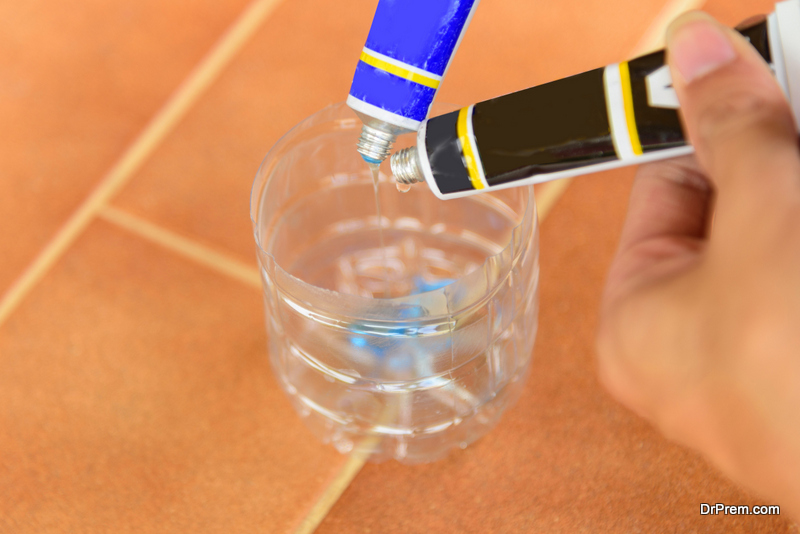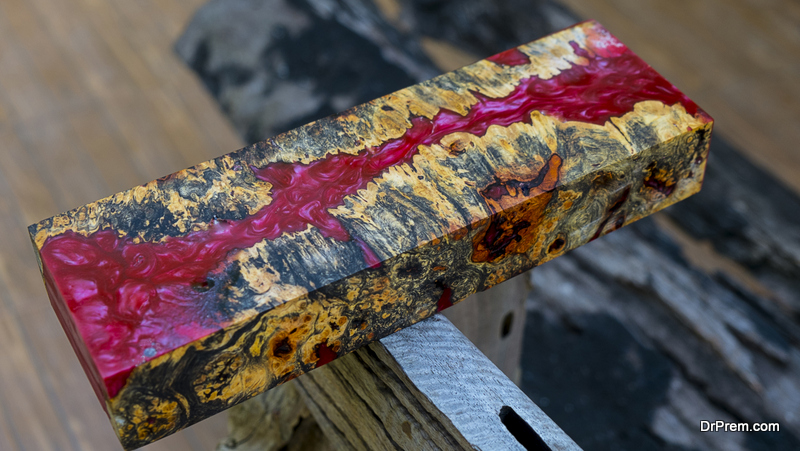The Coatings Research Institute defines epoxy resins as “a family of monomeric or oligomeric materials that can be further reacted to form thermoset polymers possessing a high degree of chemical and solvent resistance, outstanding adhesion to a broad range of substrates, a low order of shrinkage on cure, impact resistance, flexibility, and good electrical properties.”
When choosing an epoxy resin, elements such as the resin, modifiers, and the cross-linking agent can be tailor-selected to product nuanced traits for a specific application. This process affords epoxy resigns to be used for diverse applications.
Traits of Epoxy Resin
 Epoxy resins are notable for high performance. They are the fundamental agents for adhesives, coatings, reinforced plastics, and composite materials like fiberglass and carbon fiber, which can stay intact under extreme conditions. Under proper circumstances, epoxy resins offer a number of unique traits, including:
Epoxy resins are notable for high performance. They are the fundamental agents for adhesives, coatings, reinforced plastics, and composite materials like fiberglass and carbon fiber, which can stay intact under extreme conditions. Under proper circumstances, epoxy resins offer a number of unique traits, including:
- Chemical resistance, specifically alkaline environments
- Heat resistance
- Adhesion to diverse substrates
- High tensile, compression, and bend strengths
- Minimal shrinkage during curing
- Elevated electrical insulation and retention properties
- Corrosion resistance
- Cures within wide range of temperatures
- Fatigue resistance
Applications of Epoxy Resins
Often times, when “structural adhesive” or “engineering adhesive” are used, they are referring to epoxies. Epoxy resins are extremely versatile, as they can adhere to wood, concrete, metal, glass, strong, and most plastics. This versatility lends itself to the following applications, to name a few:
- Construction:Indoor and outdoor use – laminated wood, walls, roofs, countertops, and more.
- Paints and coatings:Durable outdoor coatings, sealers, heavy-duty protective coatings, industrial and automotive paints, primers, and sealers.
- Industrial tooling and composites:Molds, master models, laminates, castings, fixtures, as well as other industrial production agents. Additionally, carbon-fiber-reinforced and composite parts.
- Turbine technology:Wind turbine blades.
- Electrical systems and electronics:Motors, generators, transformers, gear switches, bushings, insulators, printed wiring boards (PWBs), potting, and semiconductor encapsulates.
- Consumer and marine:Epoxies are available in most hardware and marine stores in packs that require the proper mixture of resin and hardener before use. These kits are practical for many home and boat repair projects.
- Aerospace:In the field of aerospace, among others, epoxy is used as a structural adhesive that is reinforced with materials like glass, Kevlar, boron, or carbon fiber. This option is popular in aerospace because of epoxy resin’s high-performance mechanical properties and environmental deterioration resistance.
- Biology:Durcopan is a water-soluble epoxy used for the embedding of electron microscope samples in plastic for sectioning and imaging.
- Art:Epoxy resin can be mixed with pigment for painting, often for the purposes of making jewelry, or used in decoupage applications for artwork, tables, and countertops.
Choosing Epoxy Resins
 When choosing epoxy resins, there are multiple questions to consider, such as:
When choosing epoxy resins, there are multiple questions to consider, such as:
- Use:Will the epoxy be used for a general-purpose project or a more industrial application?
- Work-life:How much time will you need to work with the epoxy before it sets up?
- Cure time:How much time will it take for the epoxy to cure and be full-strength before the product can be used?
- Temperature:Within what temperature range will the part operate? Has this epoxy resin been tested to operate under extreme temperatures if need be?
Consulting a reputable retailer will help in determining these answers and others to guarantee the proper epoxy resin is selected for your task.
Given the ability of epoxy resins to perform highly under extreme conditions, especially when combined with carbon or other fibers, they produce composite materials with the properties that are useful in several applications. Their unique, high-performance properties make them ideal under circumstances that include extreme conditions. The resin, modifier, and cross-linking agent can be modified to create a custom epoxy that performs under very specific conditions. These characteristics make epoxy resins the ideal choice for a wide range of applications and conditions.
Article Submitted By Community Writer




